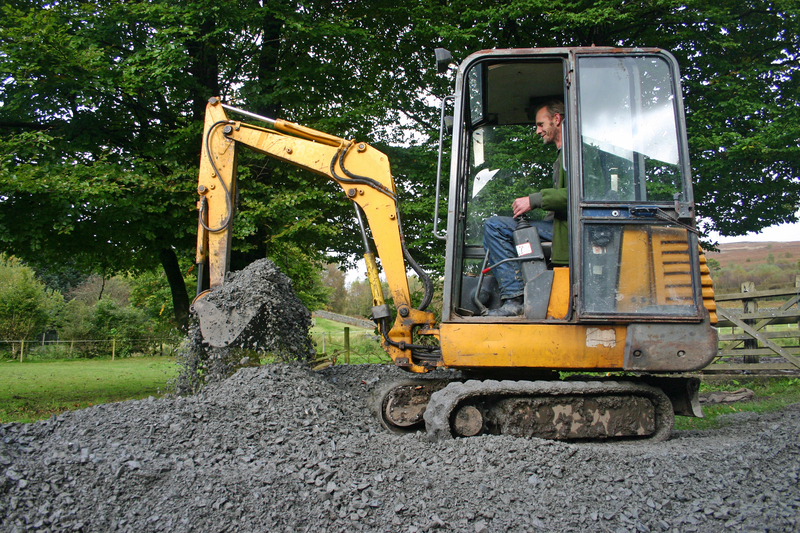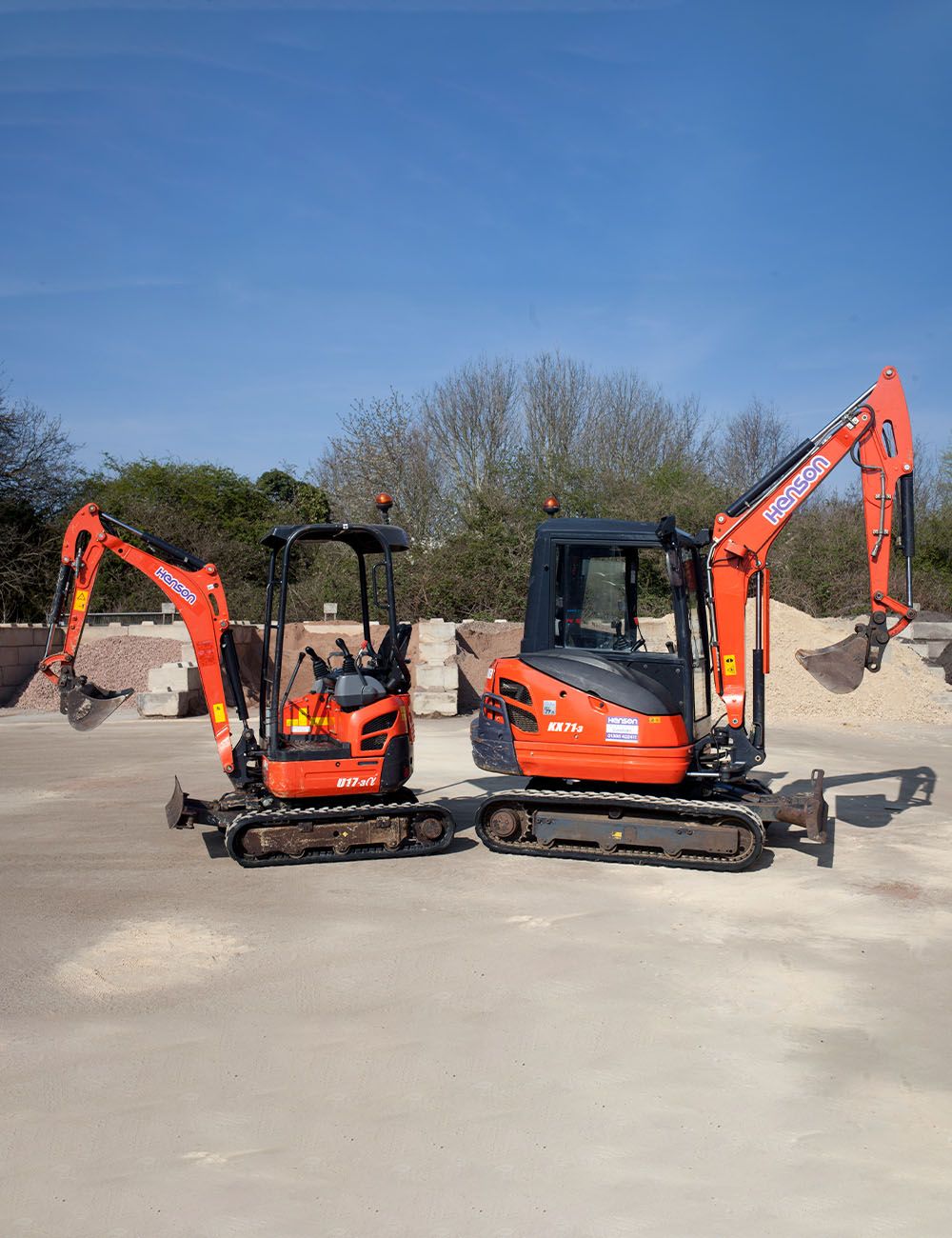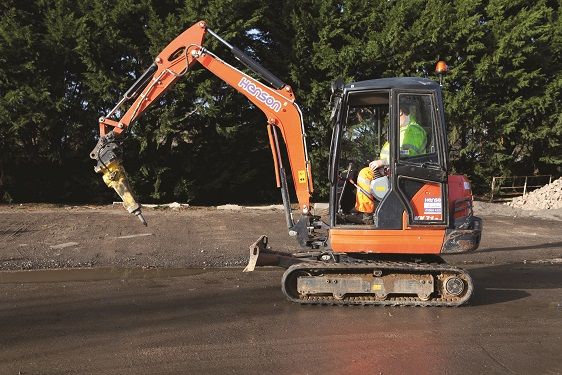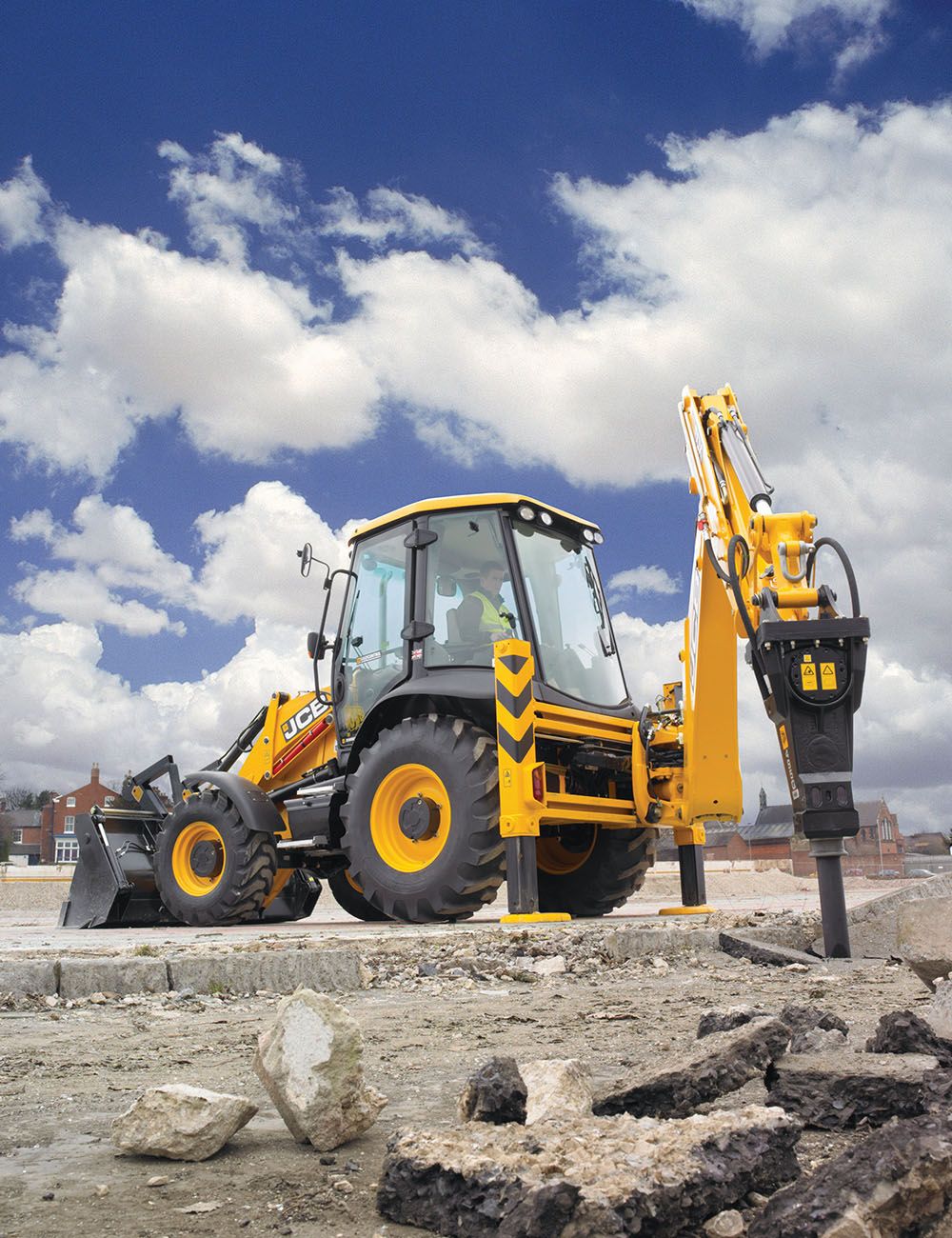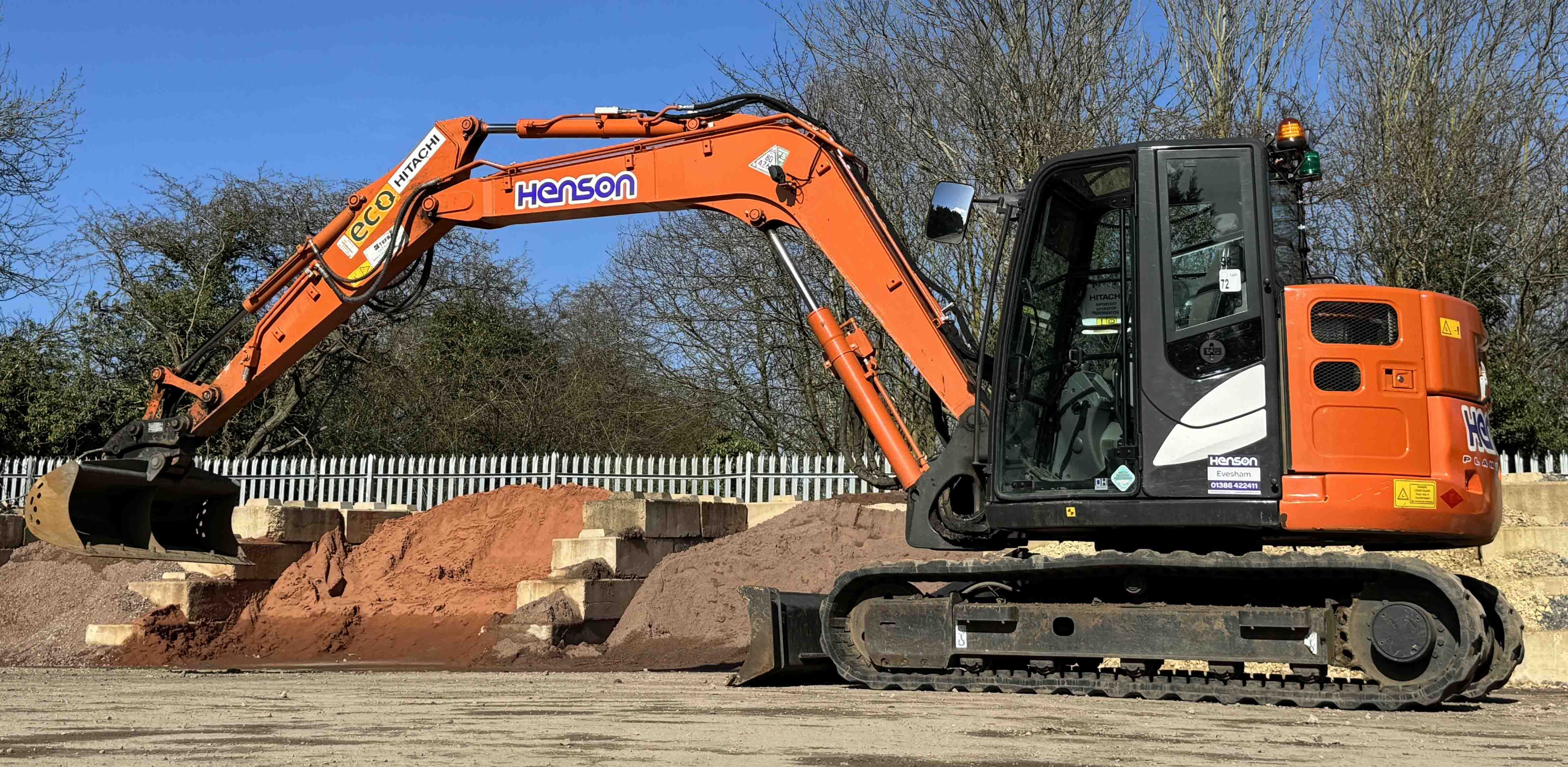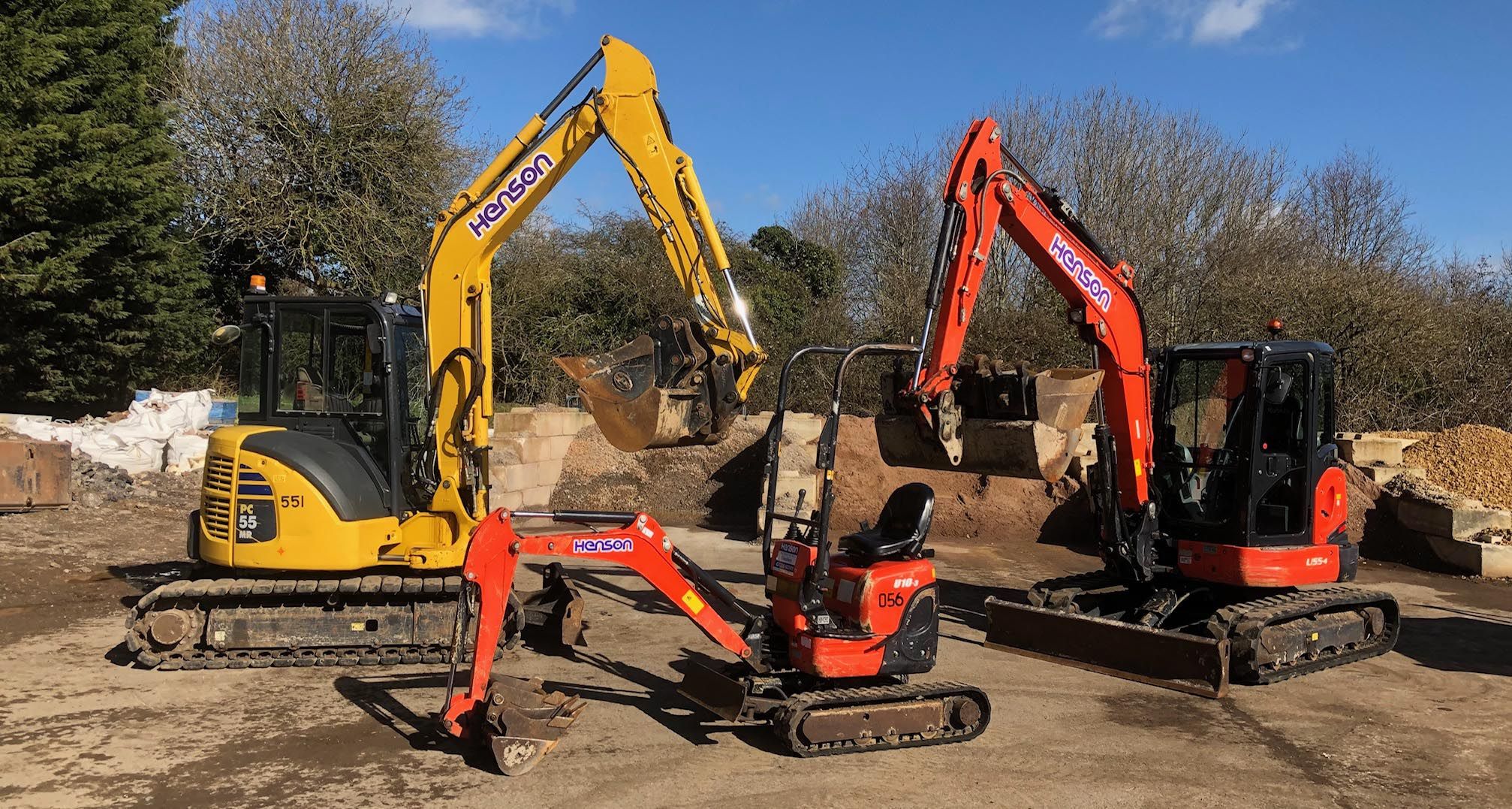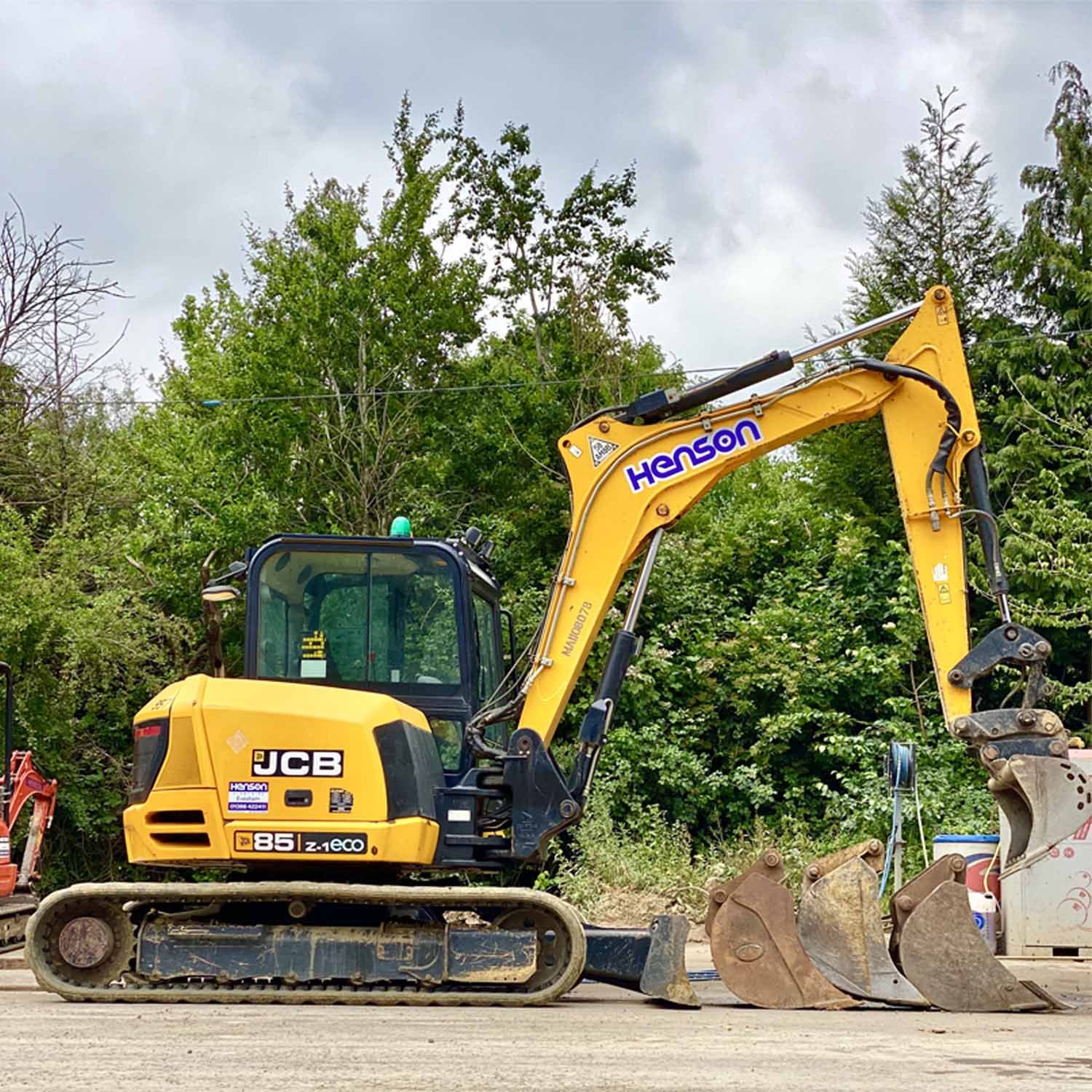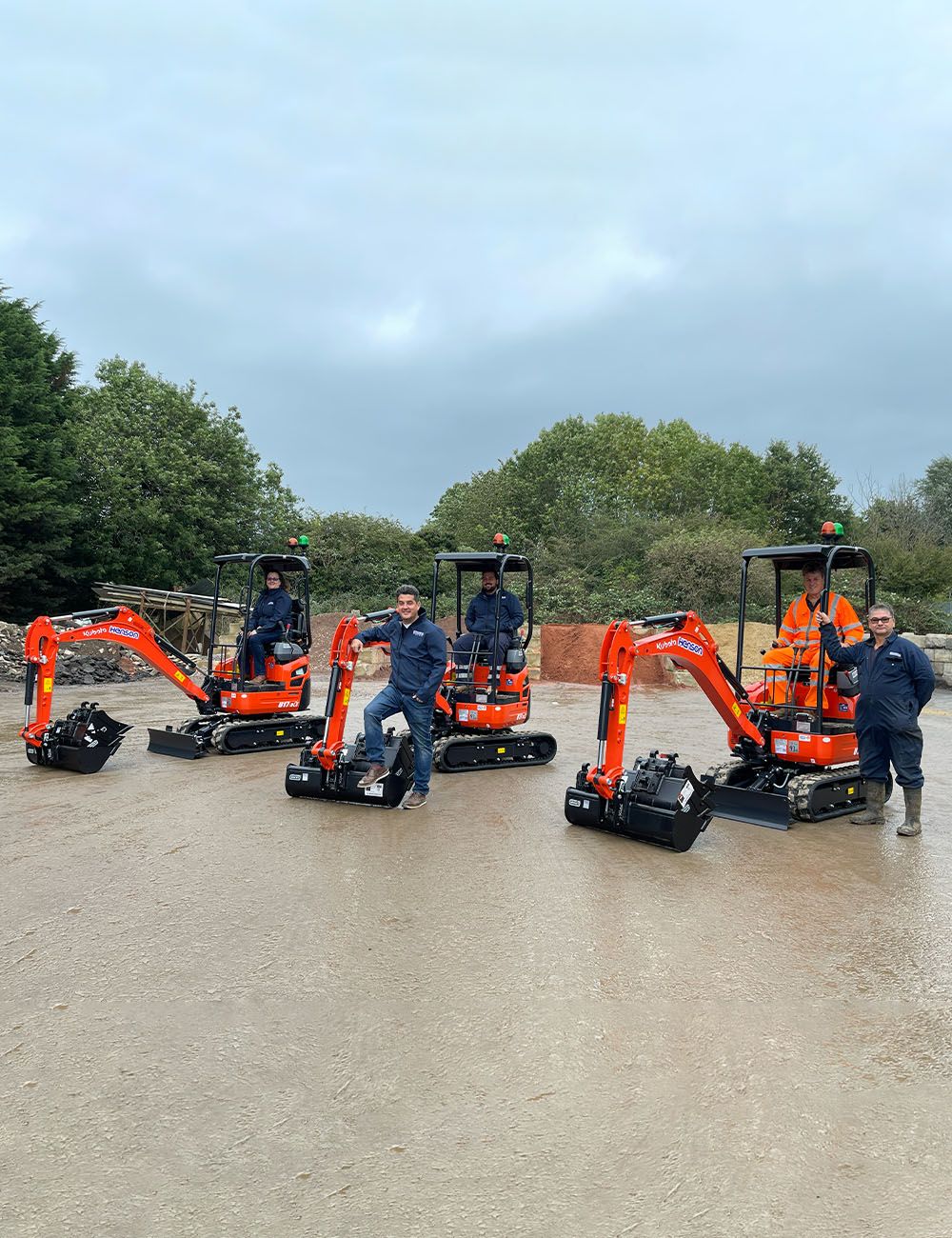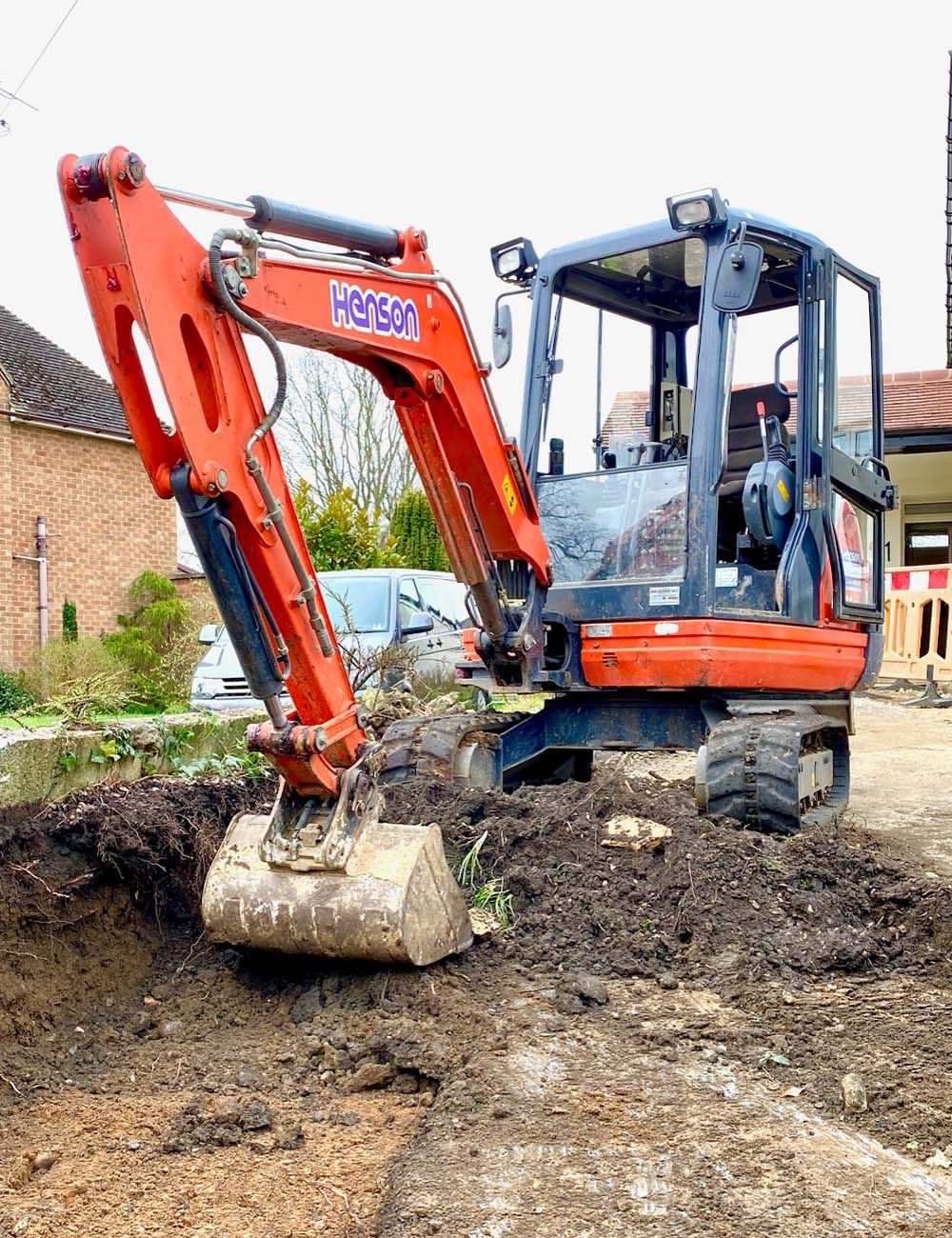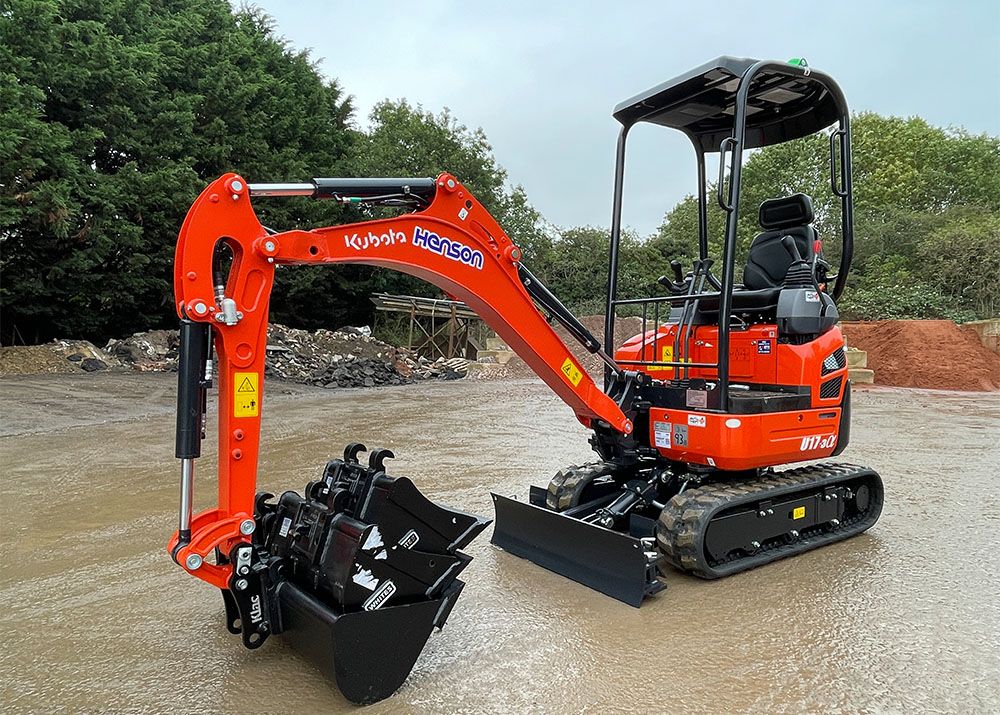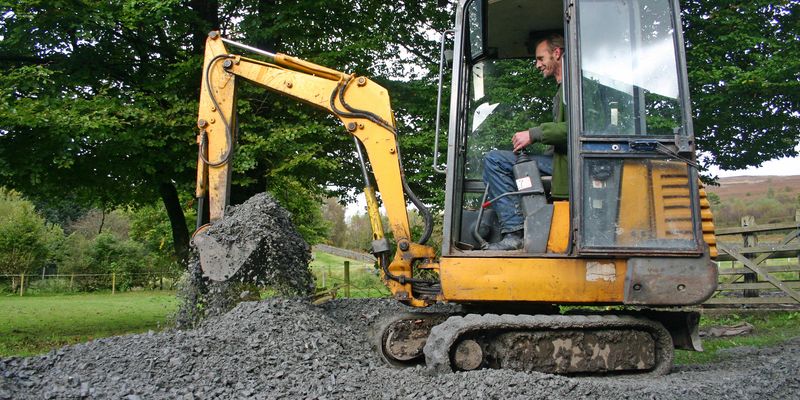
Can Anyone Hire a Mini Digger?
Blog
In the world of construction, landscaping and DIY, the prospect of harnessing the power of mini diggers has piqued the interest of many. Can anyone, regardless of expertise or professional background, access these compact yet mighty machines?
In this article, we're going to uncover the answer to this question, while shedding light on the significance of mini diggers in diverse projects. So, join us as we dive into the world of mini diggers and find out how and if you can hire one.
Understanding Mini Diggers
Mini diggers, also known as mini excavators, are powerful yet compact machines designed for a wide range of excavation and construction tasks. Despite their small size, they offer exceptional versatility and functionality, making them indispensable in various projects.
Mini diggers are characterised by their compact size, ranging from 1 to 10 metric tons, which allows them to navigate through tight work sites and perform tasks such as digging trenches, demolishing small structures, lifting materials, and more. Their efficiency, power, and manoeuvrability make them valuable assets in projects where space is limited and precision is required.
What types are there?
The market for a mini digger is diverse, with offerings from well-known manufacturers such as Caterpillar, Bobcat, Develon, John Deere, JCB, Hyundai, and Komatsu. These machines can be purchased new or utilised through rental services, allowing businesses and individuals to access the equipment they need for their projects.
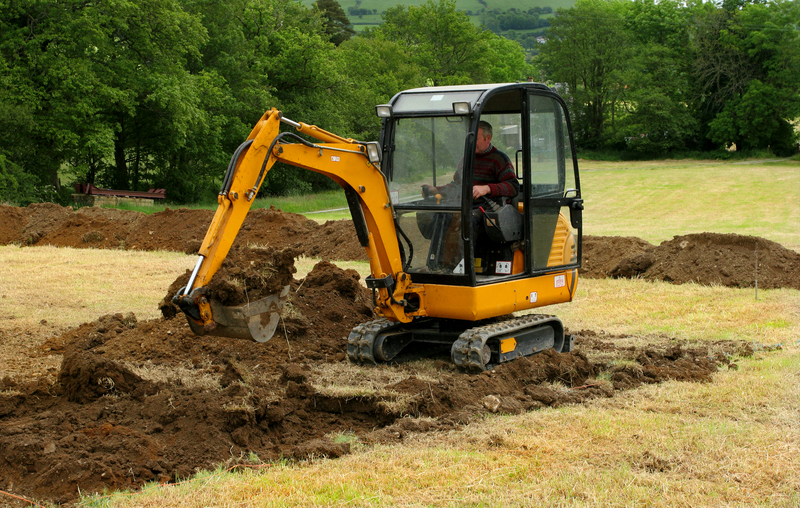
So, who can hire a mini digger?
In short, anyone can hire a mini digger. There are no specific guidelines set by the Health & Safety Executive (HSE)regarding the age and ability required to hire a mini digger. However, hiring and operating a mini digger may require some level of familiarity and understanding of the equipment to ensure safety and effectiveness.
It's important for individuals who are new to hiring and operating a mini digger to consider factors such as proper training, understanding of excavation work, and adherence to safety protocols. Renting a mini excavator from reputable companies and seeking guidance on its operation could also be beneficial for those without prior experience.
Whether you're a homeowner looking to spruce up your yard, a contractor tackling small construction projects, a landscaper beautifying outdoor spaces, a farmer getting things done on the farm, or a construction company handling various excavation tasks, renting a mini digger is a hassle-free process that can perfectly fit your needs.
The rental process typically doesn't require a specific account, deposit, or insurance, making it easy for anyone to access these versatile machines. This accessibility allows individuals and businesses to take advantage of the manoeuvrability, cost-effectiveness, and efficiency that mini diggers offer.
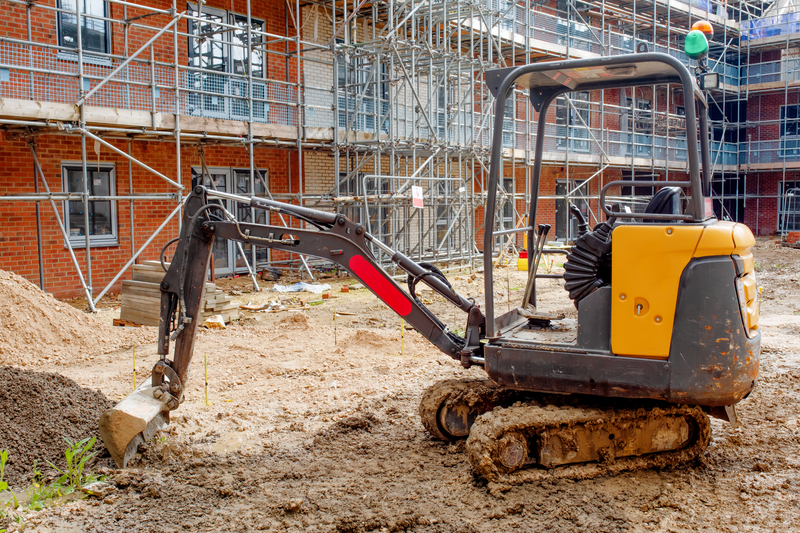
Rental Options for Individuals and Businesses
For individuals, renting a mini digger provides an accessible way to tackle landscaping projects, small construction tasks, or any other DIY endeavours without the need for significant investment in purchasing heavy equipment. This flexibility allows individuals to complete various outdoor projects while managing costs efficiently.
On the other hand, businesses can benefit from renting mini diggers to handle professional excavation work, construction projects, landscaping contracts, or agricultural tasks. Renting provides the ability to scale resources as needed, avoid long-term commitments, and access the latest equipment without significant capital outlay, making it a practical choice for businesses of all sizes.
Exploring the Process of Hiring a Mini Digger
The process of hiring a mini digger involves considerations such as equipment specifications, rental duration, and operational training. Understanding the rental process can empower users to make informed decisions regarding using mini diggers for their projects. Let's take a look at how an excavator plan hire process goes.
- Initial Inquiry: The process often starts with an initial inquiry, either through a rental company's website, phone call, or in-person visit. During this step, you can discuss your specific requirements, project details, and the rental duration.
- Equipment Selection: Once you've communicated your needs, you can select the appropriate mini digger model based on the size, power, and attachments required for your project.
- Documentation and Agreements: Rental companies usually require minimal documentation and agreements to be completed, which may include basic personal or business information, identification, and potentially a brief safety briefing.
- Delivery or Pickup: Depending on the rental company's policies, you can arrange for the mini digger to be delivered to your location or picked up from the rental yard.
- Usage and Return: Once you receive the mini digger, you can put it to work for your project. After completing the rental period, you'll return the equipment to the designated location, ensuring it's in the same condition as when you received it.
- Payment and Feedback: Lastly, you'll settle the payment for the rental period, and providing feedback on the equipment and service can be valuable for both you and the rental company.
Cost Comparison with Traditional Options
The cost of hiring a mini digger presents an interesting comparison to traditional excavation methods. By examining the financial implications of mini digger rentals versus traditional options, users can gauge the cost-effectiveness and efficiency of utilising these compact excavators for their projects. Several factors come into play when comparing the costs of renting a mini digger with traditional options such as purchasing or hiring manual labour for excavation and landscaping tasks.
- Initial Investment: Purchasing a mini digger involves a significant upfront cost, which may be prohibitive for individuals or small businesses with limited budgets. Renting, on the other hand, eliminates this initial investment, making it more accessible.
- Maintenance and Repairs: Owning a mini digger entails ongoing maintenance, repairs, and storage expenses. Renting shifts these responsibilities to the rental company, reducing the burden on the renter.
- Flexibility and Utilisation: Renting provides flexibility regarding access to different models, sizes, and attachments based on project requirements. Traditional ownership restricts the utilisation of a single machine, potentially limiting its applicability across diverse projects.
- Labour Costs: Compared to manual labour, renting a mini digger can significantly reduce labour costs, especially for larger and more complex projects. The efficiency and productivity of a mini digger often outpace manual labour, leading to cost savings in the long run.
- Opportunity Cost: Renting a mini digger allows individuals and businesses to allocate capital to other areas of their projects or operations, potentially generating higher returns than investing in heavy equipment.
Considerations Before Hiring
Before hiring a mini digger, there are several key considerations to keep in mind to ensure a smooth and successful rental experience. These considerations apply to both individuals and businesses looking to rent a mini digger for various projects:
- Project Scope: Clearly define the scope of your project and the specific tasks you intend to accomplish with the mini digger. This will help you determine the appropriate size, power, and attachments required for the equipment.
- Rental Duration: Evaluate the duration of your project to determine the rental period needed for the mini digger. Consider any potential delays or additional time requirements to ensure you have the equipment for the necessary duration.
- Site Accessibility: Assess the accessibility of your project site, including terrain, space constraints, and any potential obstacles. This will help you select a mini digger to manoeuvre and operate effectively within the given environment.
- Safety and Training: Ensure operators have the necessary training and certifications to operate the mini digger safely. If not, consider arranging for training or hiring a qualified operator to handle the equipment.
- Rental Terms and Costs: Thoroughly review the rental terms, including costs, insurance, maintenance responsibilities, and any additional fees. Understanding these details will help avoid surprises and ensure a transparent rental agreement.
- Equipment Inspection: Before accepting the equipment, conduct a thorough inspection to ensure that the mini digger is in good working condition and has all necessary attachments and safety features intact.
- Support and Assistance: Inquire about technical support, maintenance, and emergency assistance provided by the rental company throughout the rental period to address any potential issues promptly.
What are micro Excavators used for?
Micro diggers have become increasingly popular due to their ability to deliver productivity and performance in challenging job site conditions and restricted areas. They are, therefore, essential tools for modern construction and excavation tasks.
These machines can perform tasks such as digging trenches, grading, lifting, and loading materials. Their ability to navigate tight spaces and manoeuvre through challenging terrains makes them ideal for small-scale and large-scale projects. Here are some common uses of mini diggers:
- Construction Projects: Mini diggers are commonly used in construction for tasks such as digging trenches, backfilling, levelling, and grading. Their compact size allows them to navigate through confined spaces on job sites, making big jobs seem like light work - making them invaluable for projects where space is limited.
- Landscaping: These machines are ideal for landscaping projects, including clearing debris and vegetation, digging holes for planting, and sculpting terrain to create desired features such as ponds or pathways.
- Demolition: Mini diggers equipped with specialised attachments can be used for small-scale demolition tasks, such as breaking down walls, removing concrete, and clearing small structures.
- Utility and Maintenance Work: Mini diggers are frequently employed for utility and maintenance tasks, including stump removal, material handling, and digging holes for fence posts.
- Agricultural Applications: On farms, mini excavators are utilised for tasks ranging from spearing and moving hay bales to digging holes for various agricultural purposes.
- Versatile Attachments: The versatility of mini diggers is further enhanced by the ability to swap out attachments, allowing them to perform tasks such as drilling, compacting trenches, and more, depending on the specific needs of the project.
Key Features and Benefits
Mini diggers are equipped with features such as hydraulic systems for precise control, a full range of attachment options for different tasks, and comfortable operator cabins for extended use. Their compact size allows for easy transportation and manoeuvrability on job sites.
Let's take a closer look at some of the other benefits of hiring micro excavators.
- Easy Transportation: Mini excavators are easy to transport, improving efficiency and reducing transportation costs.
- Tight Navigation Capabilities: These machines offer tight navigation capabilities, allowing them to manoeuvre effectively in confined spaces and enhancing productivity on job sites.
- Reduced Noise Pollution: Mini excavators contribute to reduced noise pollution, making them suitable for urban or noise-sensitive environments
- Manoeuvrability: Due to their size, mini diggers can manoeuvre through tight areas and quickly work inside buildings and underground, enhancing their versatility.
- Cost-Effectiveness: Mini excavators' small size, weight, and low tail swing translate to cost-effectiveness, making them efficient and economical choices for various tasks.
- Operator Comfort: Mini diggers provide operator comfort, contributing to the overall efficiency and ease of operation during extended use.
- Lower Maintenance Expenses: Unlike larger machines, mini excavators have fewer components, leading to lower maintenance expenses and simplified operation.
- Fuel Efficiency: Mini excavators are designed to be fuel-efficient, thereby reducing operating costs and enhancing overall efficiency.
The benefits of mini diggers include easy transportation, tight navigation capabilities, reduced noise pollution, manoeuvrability, cost-effectiveness, operator comfort, lower maintenance expenses, and fuel efficiency, making them valuable assets for various construction and excavation projects.
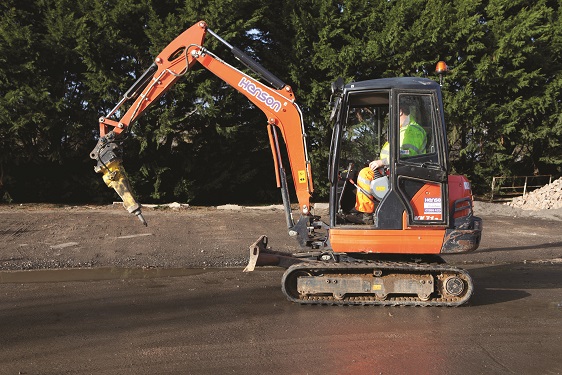
Final Considerations
As you consider your options, we encourage you to explore the numerous benefits and opportunities of renting a mini digger. Whether it's for landscaping, construction, or utility work, mini diggers provide the agility and power necessary to tackle diverse projects with ease and precision.
Henson Plant
If you're considering hiring a mini digger for your upcoming project, now is the perfect time to explore the available options and experience the impact that these machines can have. Contact us today if you have any enquiries or questions about mini diggers - or any plant hire machinery in general. Our team of experts will be happy to help you.
Articles
